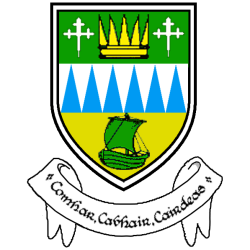, as of 2023. 64 different players have won, as of 2023.
won seven.
1971: Donie O'Sullivan
1972: Donie O'Sullivan2nd, Mick O'Connell
1973: John O'Keeffe
1974: Paudie Lynch
1975: Paudie O'Mahony, John O'Keeffe2nd, Ger Power, Mickey "Ned" O'Sullivan, John Egan
1976: Ger O'Keeffe, John O'Keeffe3rd, Ger Power2nd, Mikey Sheehy, Pat Spillane
1977: Pat Spillane2nd, John Egan2nd
1978: John O'Keeffe4th, Paudie Lynch2nd, Ger Power3rd, Pat Spillane3rd, Mikey Sheehy2nd, John Egan3rd
1979: John O'Keeffe5th, Tim Kennelly, Ger Power4th, Seán Walsh, Pat Spillane4th, Mikey Sheehy3rd
1980: Charlie Nelligan, Tim Kennelly2nd, Jack O'Shea, Ger Power5th, Pat Spillane5th, Eoin Liston, John Egan4th
1981: Jimmy Deenihan, Paudie Lynch3rd, Páidí Ó Sé, Jack O'Shea2nd, Seán Walsh2nd, Denis "Ogie" Moran, Pat Spillane6th, Mikey Sheehy4th, Eoin Liston2nd
1982: Páidí Ó Sé2nd, Jack O'Shea3rd, Mikey Sheehy5th, Eoin Liston3rd, John Egan5th
1983: Páidí Ó Sé3rd, Jack O'Shea4th
1984: Páidí Ó Sé4th, Tommy Doyle, Tom Spillane, Jack O'Shea5th, Eoin Liston4th, Pat Spillane7th, Mikey Sheehy6th
1985: Páidí Ó Sé5th, Mick Spillane, Tommy Doyle2nd, Jack O'Shea6th, Pat Spillane8th
1986: Charlie Nelligan2nd, Tommy Doyle3rd, Tom Spillane2nd, Pat Spillane9th, Mikey Sheehy7th, Ger Power6th
1987: Tom Spillane3rd, Ger Lynch
1988: Maurice Fitzgerald
1989: Connie Murphy
1996: Maurice Fitzgerald2nd
1997: Declan O'Keeffe, Séamus Moynihan, Eamonn Breen, Pa Laide, Maurice Fitzgerald 3rd
2000: Declan O'Keeffe2nd, Séamus Moynihan 2nd, Mike McCarthy, Darragh Ó Sé, Liam Hassett, Mike Frank Russell
2001: Johnny Crowley
2002: Darragh Ó Sé2nd, Colm Cooper
2004: Diarmuid Murphy, Tom O'Sullivan (Rathmore), Mike McCarthy2nd, Tomás Ó Sé , Paul Galvin, Colm Cooper2nd
2005: Diarmuid Murphy2nd, Mike McCarthy3rd, Tomás Ó Sé2nd, Colm Cooper3rd
2006: Marc Ó Sé, Séamus Moynihan3rd, Aidan O'Mahony, Darragh Ó Sé3rd, Paul Galvin2nd, Kieran Donaghy
2007: Marc Ó Sé 2nd, Tomás Ó Sé3rd, Aidan O'Mahony2nd, Darragh Ó Sé4th, Declan O'Sullivan, Colm Cooper4th
2008: Tomás Ó Sé4th, Declan O'Sullivan2nd, Colm Cooper5th, Kieran Donaghy2nd
2009: Diarmuid Murphy3rd, Tom O'Sullivan (Rathmore)2nd, Tomás Ó Sé5th, Séamus Scanlon, Paul Galvin 3rd, Tadhg Kennelly, Declan O'Sullivan3rd
2010: Colm Cooper6th
2011: Marc Ó Sé3rd, Bryan Sheehan, Darran O'Sullivan, Colm Cooper7th
2013: Colm Cooper8th, James O'Donoghue
2014: Paul Murphy, Peter Crowley, David Moran, Kieran Donaghy3rd, James O'Donoghue2nd
2015: Brendan Kealy, Shane Enright, Anthony Maher, Donnchadh Walsh
2016: Paul Geaney
2017: Paul Geaney2nd
2018: David Clifford
2019: Tom O'Sullivan (Dingle), David Moran2nd, Seán O'Shea, David Clifford2nd
2021: Tom O'Sullivan (Dingle)2nd, Paudie Clifford, David Clifford3rd
2022: Shane Ryan, Jason Foley, Tadhg Morley, Gavin White, Paudie Clifford2nd, Seán O'Shea2nd, David Clifford 4th
2023: Tom O'Sullivan (Dingle)3rd, Paudie Clifford3rd, Seán O'Shea3rd, David Clifford 5th
